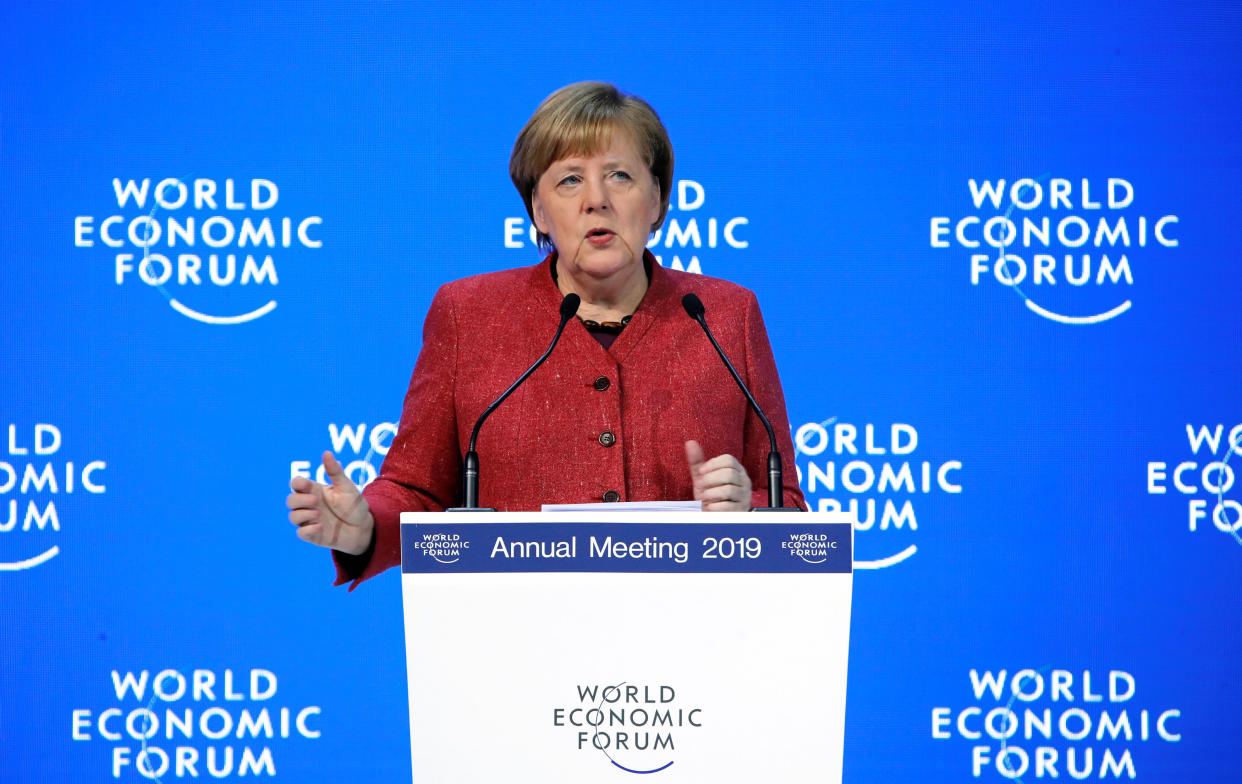Germany will keep buying Russian gas, Merkel says at Davos

German chancellor Angela Merkel delivered a frank assessment of the energy challenges facing her country at the Davos summit today. She said that industrialised countries in the West bore a lot of responsibility when it came to moving to clean energy, since they had emitted a large amount of carbon dioxide.
“Renewables are now the leading area in our energy mix,” Merkel said about Germany. “By 2020, we will have exited nuclear energy and then we have a different problem, in that the only source that can generate energy all the time is brown coal… that obviously emits a lot of CO2.”
She added that Germany “will continue to receive Russian gas, that is clear, but we will also diversify and rely on liquefied petroleum gas, which mainly comes from the United States.”
Her words were a clear message to US president Donald Trump, who has harshly criticised Germany for getting much of its natural gas from Russia. He is vehemently opposed to the controversial new Nord Stream 2 pipeline, which will increase imports from Siberia directly to Germany.
Trump’s ambassador to Berlin, Richard Grenell, this month warned German companies involved in the Nord Stream 2 pipeline that they could face US sanctions should they carry on with the project.
German politicians expressed their annoyance at what they see as Grenell meddling in Germany’s affairs. Foreign minister Heiko Maas noted that it was not for the US to decide on European energy-policy issues.
Merkel underlined that if Germany is to exit coal and nuclear power, “we will need more natural gas, and energy needs to be affordable.”
A precise strategy, and date, for Germany’s total coal phase-out is one of the most contentious issues in the country at the moment, with critics slamming the government for dragging its heels and power companies demanding huge amounts of financial compensation from the government to shut their plants.


